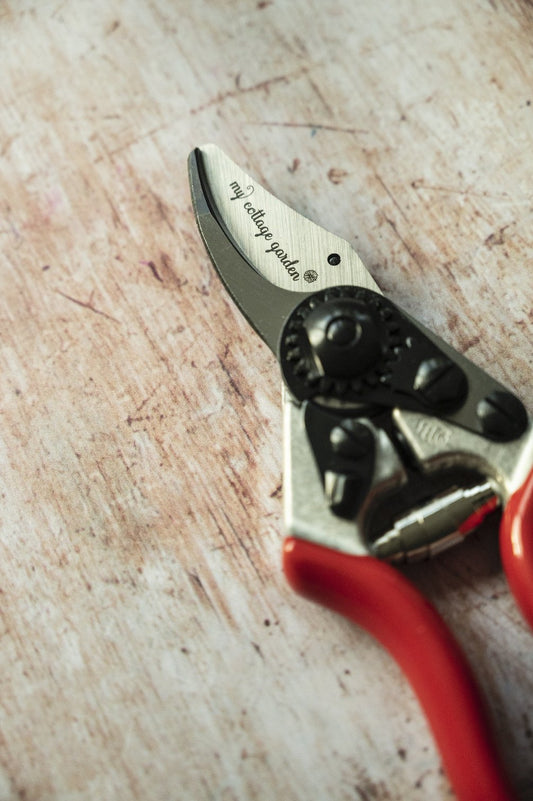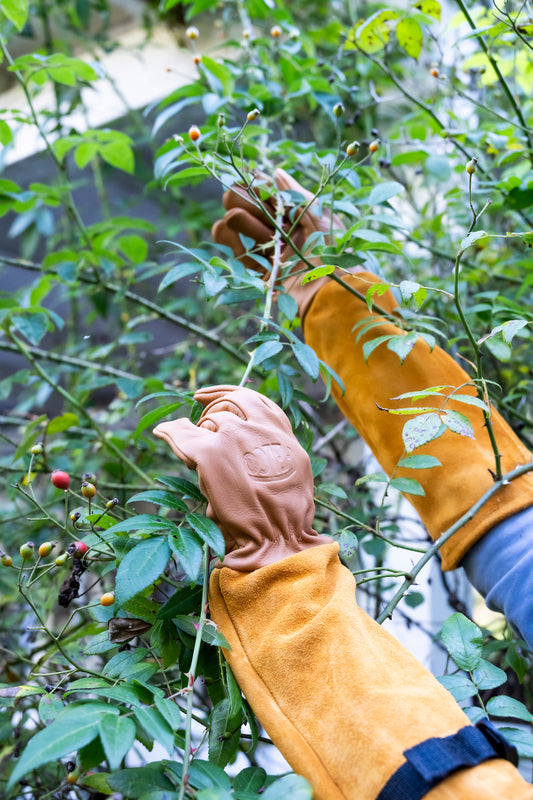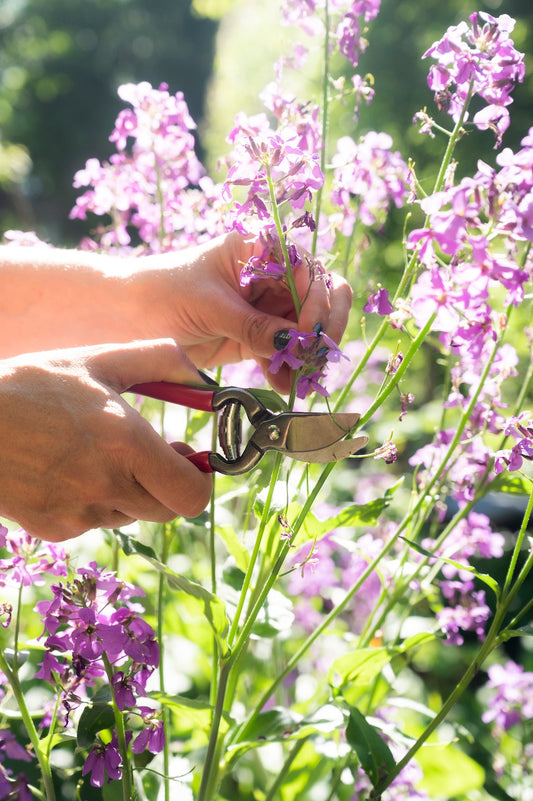DON'T BE AFRAID OF PRUNING ROSES! The best tips from the experts that everyone can do


DON'T BE AFRAID OF PRUNING ROSES!
The best tips from the expert that everyone can do
Christian Schultheis – owner of Germany’s oldest rose nursery – in an interview
Every year, just before the forsythias bloom, I am overcome by a short but intense panic attack.
It's time to prune the roses.
With over 60 roses (three children, a job, a household and other minor details), it is not the time factor that causes me anxiety, but rather my colorful potpourri of proud, idiosyncratic and sometimes capricious creatures:
Everyone is waiting for me to critically examine (in the truest sense of the word) what I do with them every year: Shakespeare, Othello and of course Heidi Klum, who looks me up and down...
And every year beforehand I pick up my various rose books.
And every year I notice that each one says something different. After reading it, I'm more confused than before.
With little beads of sweat on my forehead, I somehow get started. I am helped by the thought that I will never know what would have happened if I had used the scissors differently.
So. But not this year.
Now I want to know. I'm asking the rose expert in Germany.
mycottagegarden: Mr. Schultheis, you are the fifth generation to run Germany's oldest rose nursery and are master of a sea of roses. What happens when the forsythias bloom? Are the eyes on the outside of all your roses always beautiful?
Christian Schultheis: In addition to the rose bushes in our garden, we also prune back a huge number of container roses. Unfortunately, the eyes are not always nicely positioned on the outside (as one would like). If we were to prune the roses with a slightly slanted cut over an outside eye - like in the school book - we would never get it done. That's why we pay more attention to the correct cutting height and prune out rose shoots that are too thin (anything thinner than a pencil).
mcg: And what is the deal with the forsythia blossom anyway? Why should you prune it at that time?
ChS: The forsythia blossom is simply a good indication that no more hard frost is to be expected. A rule of thumb for orientation, because the ideal time to prune naturally varies from region to region - in the Rhineland, for example, it is earlier than in the low mountain ranges.
mcg: The topic of pruning roses fills chapters, even entire books. Hybrid tea roses, bed roses, historic roses, climbing roses, shrub roses, ramblers, repeat-flowering, once-flowering - and each one needs to be treated differently. Can you give us a summary of your most important tips and advice?
ChS: For the correct pruning, it is very important to know which rose you are dealing with. Noble roses, flowerbed roses and miniature roses should be cut back to around 15 cm. We only pay attention to the position of the eyes with very delicate noble roses. With all bushy varieties, it is sufficient to pay attention to the cutting height. English roses, modern shrub roses and historic roses are cut back by around a third, maximum by half. A dome-shaped growth should develop and heavily branched and too thin shoots are thinned out. Climbing roses can tolerate being cut back by around a third. What you should pay attention to is that the shoots should be shaped after pruning, i.e. aligned in the way you would like the rose to grow. Horizontal shoots bloom the most. With rambler roses that bloom more often, you cut out heavily branched shoots and can cut the shoots back by around a third. With large rambler roses, you cut as needed. If something is bothersome, it is removed.
mcg: I keep getting questions from my readers who are afraid of doing something wrong when pruning roses. Can you really do something wrong?
ChS: No. You can't damage roses by cutting them incorrectly. In the worst case, the roses will bloom less and sprout with lots of new shoots. It would be much worse not to prune them at all. Then the roses will turn old after just a few years and sprout less and less.
mcg: If I absolutely don't know which category a rose belongs to (because, for example, the garden was taken over or the rose was given to me as a gift), how can I stay on the safe side?
ChS: You can't go wrong with a third cut back like with shrub roses. This will ensure that every rose blooms reliably. There are many flowerbed roses in gardens that have been cut as shrub roses. And they make a magnificent impression.
mcg: Some of my shrub roses are only blooming at the top and are rather bare at the bottom. Can I try a radical cut?
ChS: If you cut it back by a third every year, it will develop enough young and leafy base shoots. If not, you can always cut back a few old shoots in the bush. If the whole bush is old and bare, you can help with a radical measure: then all shoots can be cut back heavily at the end of June after the main flowering. The bush will grow back with many young shoots by autumn.
mcg: I have some roses that reliably get black spot, rust or mildew every year. Should I clean the pruning tool before using it to prune healthy roses?
ChS: It certainly won't do any harm. To disinfect the scissors, place them in spirit for three minutes and then burn them. However, the three fungi are more likely to be leaf diseases and are mainly spread via air and water droplets.
mcg: Some of my roses don't lose their leaves over the winter, but most of them look unsightly. Should I pluck them off or leave them on?
ChS: As with many things, basic hygiene is the most important thing. After pruning, all old leaves are removed from the rose and disposed of. This also applies to roses that still have beautiful leaves after the winter. Old leaves are always a source of infection in the summer. Don't leave the leaves on the ground, but collect them. Bark mulch under roses also tends to promote disease.
mcg: And now probably the most difficult question. On a deserted island (with an ideal rose climate ;-)—which three roses would you take with you - and why?
ChS: The answer is very clear to me. Rose de Resht, Charles de Mills and Belle sans Flatterie. They can grow wild there and survive without any care. Because on the deserted island I probably have more important things to do than look after roses ;-)
mcg: Well then, off to the garden and get the shears ready. Thank you very much!


























